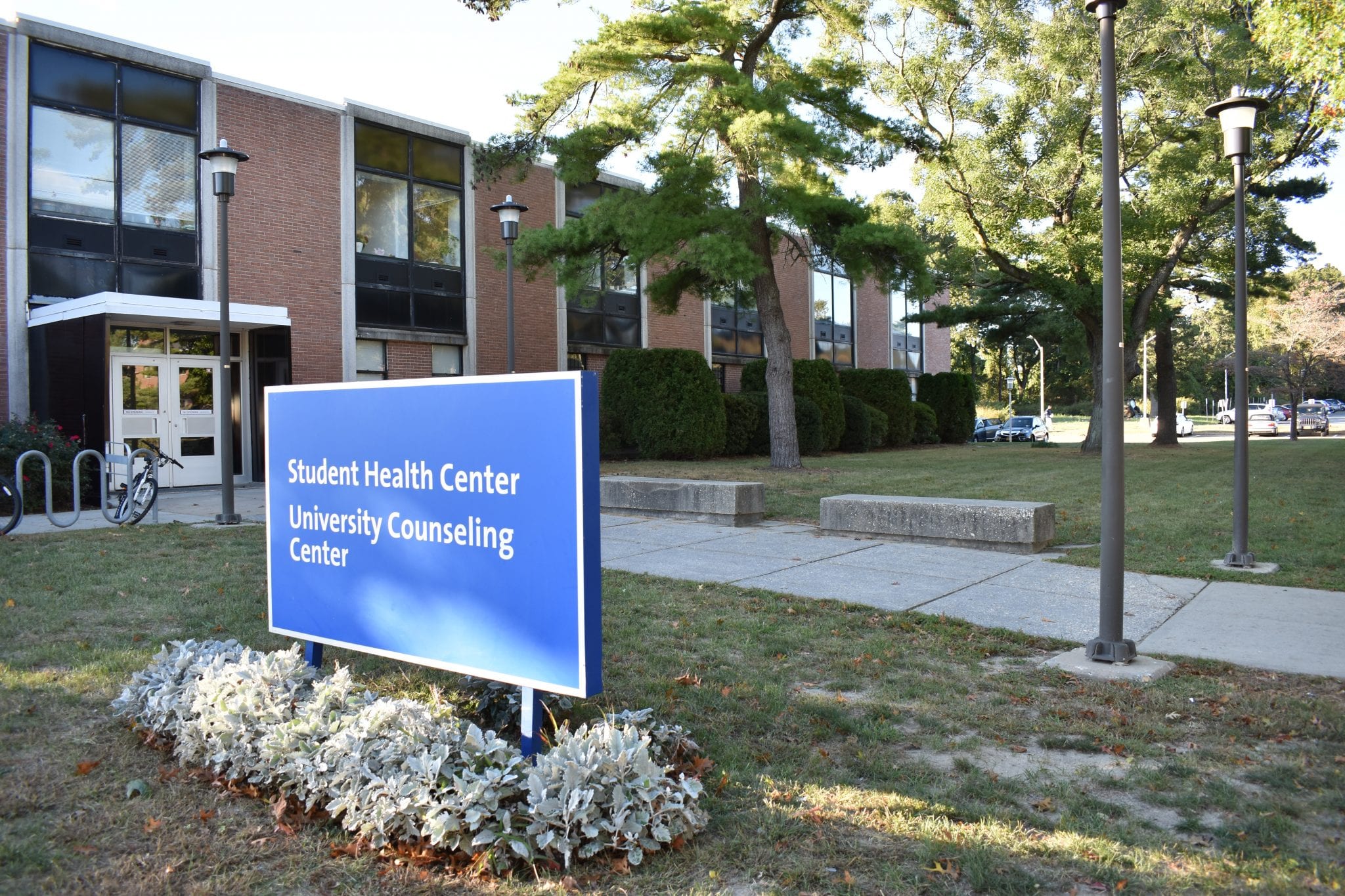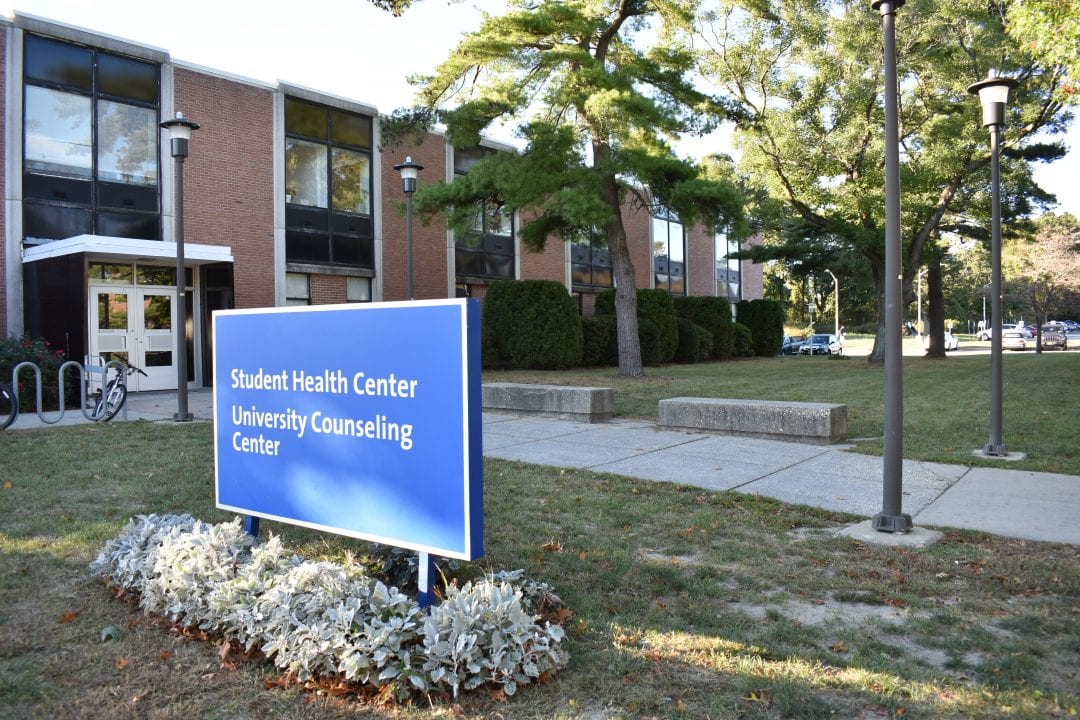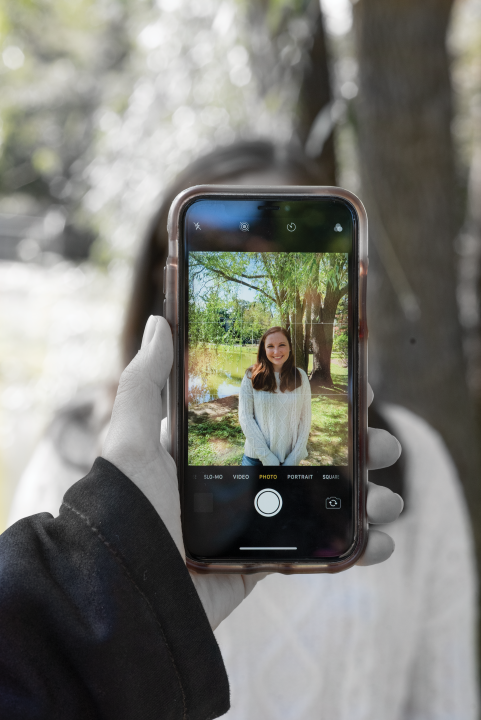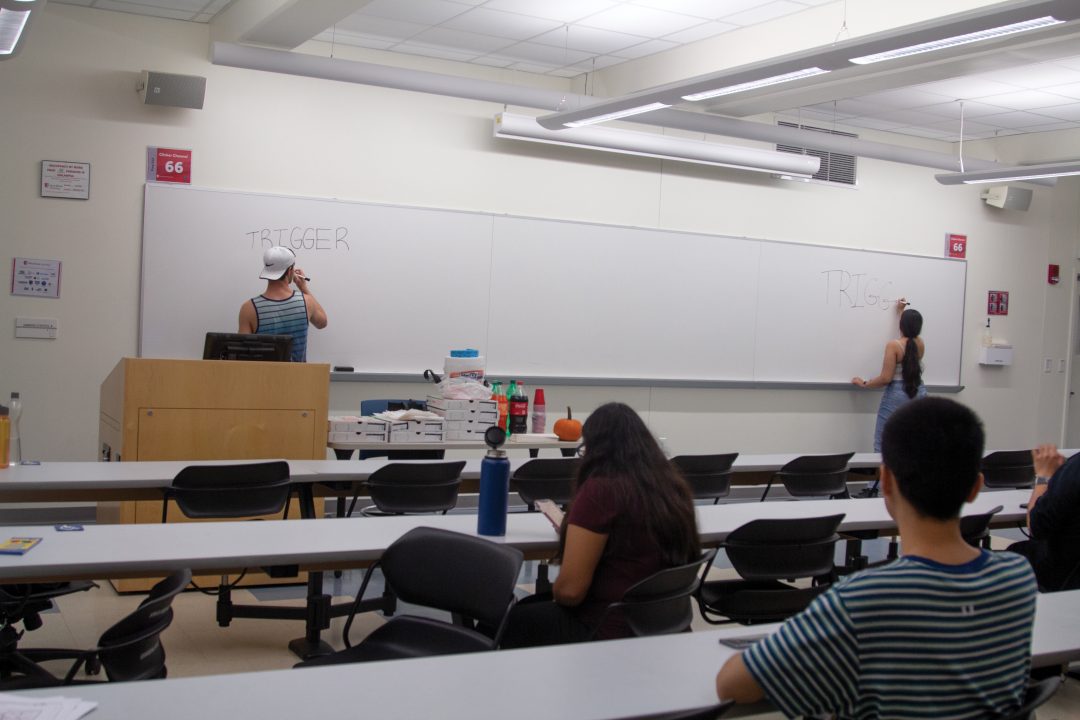
When a majority of the student body evacuated campus and classes shifted to an online format, Stony Brook University’s Counseling and Psychological Services (CAPS) transitioned quickly to a remote format for the rest of the year.
Remotely, they have been providing telehealth counseling, virtual pictures of pets in the Pet Away Life Stress (PALS) program and continued 24/7 service to help students cope with their struggles during the global health crisis.
Dr. Jenna Palladino, a clinical assistant professor of psychiatry at the Renaissance School of Medicine, said that COVID-19 has caused an increase in anxiety, depression and isolation. A Kaiser Family Foundation poll conducted in mid-July showed that 53% of adults in the U.S. reported that their mental health had been negatively impacted due to worry and stress over COVID-19, compared to the 32% first reported in March.
“Mental health is so important during the pandemic foremost because of the significant losses that so many in our community have suffered,” Julian Pessier, the director of CAPS said. “As well as the disruptions that everyone has endured to our normal coping routines and the rapid changes to how we engage in our academic, professional and social lives.”
With the help of Information Technologies support teams, CAPS was able to train and equip its staff for a virtual presence and has served over 1,500 students through telehealth counseling — a method using face-to-face telecommunications technology over the internet for psychotherapy sessions — since March.
“Once the technology aspect was figured out, the most challenging aspect, for both therapists and their clients, was finding the right time of day, a quiet private space and the best format to make sure that despite all of the disruption in our lives that counseling remained a place where productive reflection and introspection could take place,” Pessier said.
The telehealth format created new barriers for people who were already suffering from mental illness, according to Pessier. He said one of the differences between telehealth counseling and in-person counseling is that therapists might miss some of the nonverbal aspects of communication with clients, such as body language.
However, Palladino said that telehealth counseling can be just as effective as in-person counseling.
“We found that telehealth has actually been more accessible for people than when they had to come in the office and has really proven to be very effective and helpful in this time,” she said.
During the pandemic, socialization has been limited. Social isolation and loneliness played a large role in impacting mental health. Consistent evidence links social isolation to negative health consequences, such as depression, suicide and dementia.
Palladino said that the one of the best ways humans cope with stress is by socializing with others. Without socialization, stress can sometimes worsen or even cause anxiety and depression.
“During these past six months, I think we have relearned some important familiar lessons … we need people in our lives that we can let down our guard with, to be vulnerable, to have it be okay to not feel okay,” Pessier said. “Whether that happens with a therapist, a friend or a family member, we need to make and allow space for all of those parts of ourselves.”
With mandatory stay-at-home orders, school and business closures and strict social distancing guidelines, the pandemic made it harder to socialize with one another and made in-person counseling impossible.
“For students there is the loss of having the therapist’s office be a temporary escape and boundary from whatever they are struggling with in their lives,” he said.
Before the COVID-19 pandemic, CAPS would bring pets from PALS to campus particularly around finals time to help relieve student stress. They kept that going after the campus closed by posting photos and videos on their website.
Students can schedule initial consultations for telehealth counseling online, call CAPS to speak to a counselor and use CAPS After Hours, which is available 24/7.
CAPS is also still offering virtual support spaces for graduate, undergraduate, health professions, LGBTQ*, Women of Color and Chaotic Backgrounds. In these groups, people with similar experiences come together and aim to provide each other with encouragement and support.
A range of workshops is also being offered to students through CAPS, including how to cope with anxiety, mood fluctuations and relationship challenges, and how to improve sleep quality. CAPS is also working with the Center for Prevention and Outreach to host programs and activities on SB Engaged.
Deteriorating mental health conditions can also lead to the risk of suicide, according to Dr. Adam Gonzalez, the co-director at the Center for Disaster Health, Trauma & Resilience at Stony Brook University School of Medicine. He said that suicide prevention efforts are important during the pandemic.
“When you see changes in behaviors of people withdrawing more, that can be a sign or a signal that maybe something’s wrong with that person,” Gonzales said. “Maybe that person is struggling and reaching out to that individual could be helpful.”
According to a June 2020 survey from the Center for Disease Control and Prevention, about 25% of young adults aged 18-24 seriously considered suicide during the COVID-19 pandemic. In comparison, in a 2018 survey, only about 11% of young adults reported serious thoughts of suicide during that year.
Gonzalez also spoke about mitigating potential self-harm by identifying suicidal actions and behaviors in students.
“If individuals are more irritable, more short, short fuse and short tempered, that could be another sign,” he said. “Nonverbal signals are also important to pay attention to. We talked about withdrawing both socially, from communication, and then also from activities.”
Signs of isolation, Gonzalez says, could lead to potential self-harm. He says some of the ways to be helpful to people suffering from potential suicide include constantly asking direct questions and actively listening.
“Sympathy is feeling bad for somebody. Empathy is feeling bad with them; it’s all about how can you connect with that other person around how that other person might be feeling and what their experience might be,” Gonzalez said. “So it’s really trying to fully understand what’s going on with that person, and what their lived experiences [are] like, right now.”
Palladino said that feelings of depression and anxiety are normal.
“There is treatment and support that can help with this. I hope that if people are feeling this way, they reach out because this is a very normal experience right now,” she said.
To contact CAPS, students can schedule initial consultations online through the CAPS website, call at (631) 632-6720 to speak to a counselor, or call CAPS After Hours at (631) 632-6720. Students can reach the national suicide prevention hotline at (800) 273-8255.






















